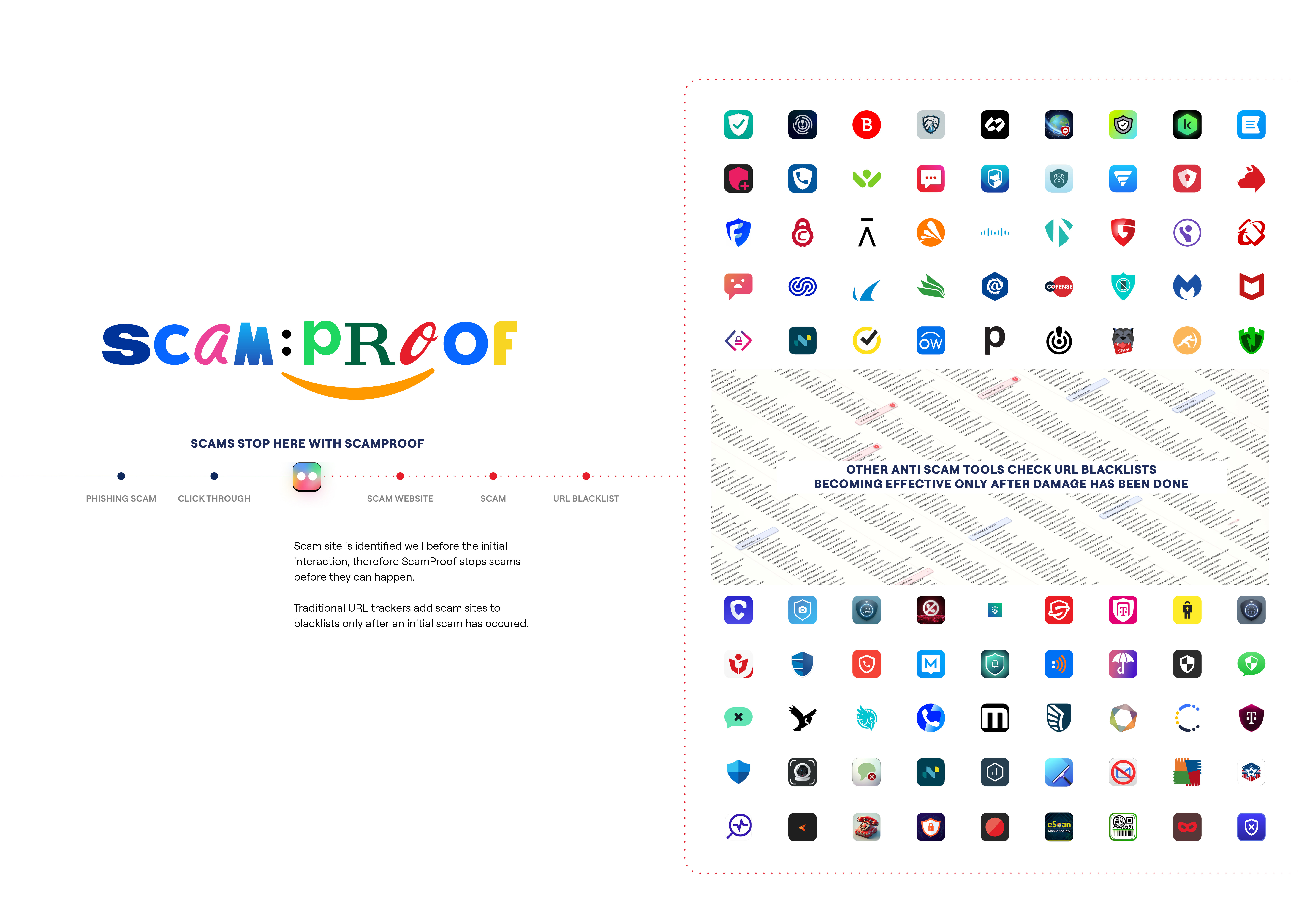
DDB NZ Launches Tool to End A Problem Advertising Helped Create: Scammers Using Brands to Steal

DDB Group Aotearoa New Zealand has created a tool called ‘ScamProof’, created with funding from Google.org, in an attempt to stop scammers weaponising people’s trust in brands to trick them out of $12 billion globally every year.
‘ScamProof’ is a lightweight VPN trained to recognise and stop scams. It ingests brand guidelines to identify elements such as fonts, logos, and colours, and monitors web traffic to recognise when a website is mimicking that of a real brand. Once the domain is checked, it blocks fake sites for all ScamProof users, and reports them to global scam databases – before the user even reaches the page.
DDB Group’s executive creative director across Track and Tribal, Haydn Kerr, knows first-hand just how convincing such scams are. He was almost tricked by an Airbnb impersonator.
“I was one click away from losing $15,000 to an Airbnb scam,” he told LBB.
“It was my 40th birthday and it was my job to find a big place in Hawaii for my extended family. But you know how it goes – no one could agree and it was getting dangerously close to departure, but then I found an absolute mansion. I sent it around to my family. Everyone thought it looked perfect. So I entered my credit card details, and just before I clicked ‘book now’, I noticed the URL was Airbnb-trip.com. It was a pixel perfect replication of the Airbnb brand.”

Since scammers imitate successful, recognisable brands -- that marketers have invested in over time -- to steal from their customers, they benefit from the advertising industry’s work. When Haydn recounted his experience to his colleagues at DDB, “the thing that stood out to everyone was that I wasn’t fooled by the technology, I was fooled by the Airbnb brand.
“As an industry, that’s what we create. We nurture, we sell, we build trust in brands. But that trust is being exploited to rinse funds from everyday people to the tune of billions every year.”
That experience, plus a TV interview featuring scam victims, led to anger, then the idea. “Often when things make you angry, they are rubbing up against one of your personal values,” Haydn said. “That means that it’s something that needs to be solved and most likely by you.”
DDB started researching anti-scam technology -- other anti-scam tools are URL trackers relying on blacklists, meaning somebody has already fallen victim to a scam and scammers can continue to create new URLs -- and applied alongside partner Netsafe to the InfoExchange Asia-Pacific Digital Transformation Programme for developing funding from Google.org.
Netsafe is a New Zealand-based online safety non-profit which DDB had worked with previously to create ‘Re:Scam’, a tool designed to waste scammer’s time. In this case, it became just one of eight NGOs to be successful in applying for the funding, which Google.org offered to innovative technologies looking to drive lasting impact.
“Brands are the weapons scammers use,” netsafe’s chief online safety officer Sean Lyons said. “Brands are advertised and people build trust in those brands. And then scammers imitate those brands perfectly in order to steal from loyal brand customers.
“ScamProof is going to change the game. Scammers will no longer be able to use brands to steal from us. Can you imagine what difference that’s gonna make?”

Once the funding was secured, DDB “went straight into build.” ScamProof is currently boasting 100% accuracy in beta testing, and is designed to integrate into existing operating software. DDB Group New Zealand’s head of product and innovation, William Falloon, explained the technology behind ScamProof is “actually really, really simple in theory.”
“Our lightweight model looks at the code of the websites and is able to determine what that code is intending to display,” he said, “which includes typefaces, colours, images, logos, UI elements, [and] search fields, and then cross references this against known website URLs.
The complexity of scrutinising the code “is a lot more effort than you would normally be doing when building out other digital products, but this effort, we are hoping, is well worth it in the long run.” In developing the tool, the team has also been conscious not to “interfere with latency or drain battery usage.”
DDB Group’s AUNZ chief creative officer, Matty Burton, told LBB ScamProof proves the agency has the capability to compete with the very best, “and clients like Google and Samsung pay us to build for them.” DDB co-owns the acclaimed Samsung iTest IP, which has been rolled out globally.
“We are building more with others that we co-own the IP on,” Matty added. He was clear about his ambition for ScamProof: “To stop scammers” by “disarming a large part of the scamming approach.”
The next steps include applying the lessons from the beta phase, final quality checks, and going live. “From here, it is a scaling story.”

“As always, we will be looking at alternate use cases for this technology, so if we can detect when a brand is being imitated, or we can see what a human is about to see, then we could apply this thinking to all kinds of bad actors online,” the CCO added.
“We may be able to stop a whole host of things that we don’t want in this world. But first, we just want to make sure we get this right.”















